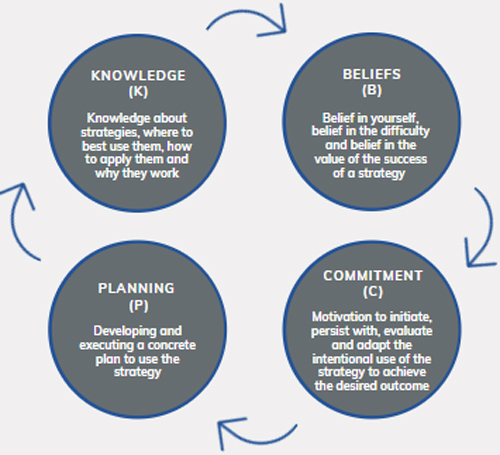The development of an effective study strategies program for school students.
A pioneering program to help educators and students get better results:
Why was A Learner’s Toolkit developed?
A Learner’s Toolkit was developed at Churchie in response to the school navigating significant changes engendered by a governmental move from a senior school-based curriculum to external, standardised assessment.
The previous school-based examination and assessment system had relied on a combination of internally designed and moderated assignments, projects, and term-based exams (often 8 to 10 weeks of content). Within-school scaling and cohort performance, determined by external core skills exams, contributed to a student’s final academic result. As a consequence of individual settings controlling much of the design of assessment and curriculum and their collective performance affecting results, the new standardised, externally assessed and moderated approach presented a significant departure for schools, impacting teaching and pedagogies.
The new curricula and assessment system removed much of the influence of the cohort or school’s performance on an individual student’s Australian Tertiary Admission Rank (ATAR) result. Now, schools could no longer favour curriculum elements at the expense of teaching the complete syllabi. Furthermore, the standardised exams assessed much larger curriculum spans, topics, and time (from 6 months to 2 years) and accounted for 25% to 50% of a student’s final subject result. Given these profound changes, the leadership teams at Churchie recognised the necessity to interrogate how to best support teachers and students to navigate the new paradigm. In particular, they recognised the need to develop new programs to better support student understanding of learning and encourage metacognitive and self-regulation. It is worth noting that at this time, conversations around (and interest in) the science of learning in Australia were in their infancy. Churchie was drawn to the purported potential to improve outcomes. However, our initial research found a paucity of classroom-based evidence outside the tertiary/university context.
Designed in partnership with world-class Universities:
How we developed A Learner’s Toolkit
The A Learner’s Toolkit was designed in partnership with the University of Queensland (UQ) Science of Learning Research Centre (SLRC) and Professor Mark McDaniel from the Washington University in St Louis.
Churchie partnered with the UQ SLRC research translation Partner Schools Program (PSP) from 2018 in the conceptualisation, implementation, evaluation and refinement of the Toolkit. The PSP, developed by the SLRC Translation Team based at the School of Education at UQ, draws on available evidence relating to promising translational approaches and associated barriers to implementation. Its design uses a bi-directional partnership model that gathers researchers and educators to collaborate on a program of inquiry derived from a school-identified phenomenon, packaging the most promising and translatable science of learning theories for a schooling context. With the support of the UQ SLRC team, A Learner’s Toolkit was implemented with the Churchie pedagogical framework and practices. The translation approach sought to overcome previously identified barriers to implementation by shaping it to suit both contexts, organisation structures and needs. Rather than the traditional overlay of theory onto practice, the expertise of educators and leaders steered the respective translation effort to affect the requisite contextual shared language. The partnership has the potential to present a working example of how schools and universities can collaborate to translate and embed evidence from the science of learning into the everyday practice of teachers and students in the classroom.
The partnership with Professor McDaniel responded to initial evaluations of the Toolkit’s impact on students. Students were primarily agnostic to one-off and isolated lectures on various study strategies. In a departure from this conventional approach, the A Learner’s Toolkit program employed a more nuanced training approach for students, informed by the Knowledge Belief Commitment and Planning (KBCP) framework devised by Professor McDaniel and his colleague Dr Gil Einstein (Furman University). The KBCP framework is built on the assumptions that the sustained self-regulated use of any strategy requires four components: acquiring knowledge about strategies, belief that the strategy works, commitment to using the strategy, and planning of strategy implementation. The KBCP framework provides a new perspective on building student capacity to select and then employ the correct strategy appropriate to the context or subject. It extends beyond common interventions that focus on knowledge about specific study strategies and instead primes students to believe that the chosen strategy is effective, works for them and is worth the effort in use. According to the KBCP model, this direct experience of success presents a powerful way to generate the requisite belief to drive effective strategy implementation, assist students in improving their metacognitive accuracy, and overcome the illusions of competence that low-utility strategies engender.

Above: Adaptation of McDaniel and Einstein (2020) Knowledge, Belief and Commitment and Planning (KBCP) Framework.


